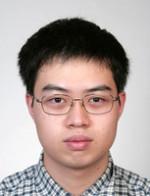
I am a visiting researcher working in the Centre for Atmospheric Sciences (Department of Chemistry), University of Cambridge. My main interests are climate dynamics, data science and machine learning. My main research topics include investigating the impact of El Niño Southern Oscillation (ENSO) on the Amundsen sea low (ASL) and applying machine learning techniques to predict the Northern annular mode.
An important aspect of my work is to use machine learning techniques to predict the Northern annular mode (NAO). The NAO is the leading mode of variability in the North Atlantic region and plays an important role in determining wintertime climate in both Europe and North America. We use several machine learning techniques (e.g. ridge regression) to try to predict boreal winter (December-January-February) NAO index using global sea ice, sea surface temperature and geopotential height data. Currently, we are trying to use neural networks to improve our NAO predictions.
My interest in data science and machine learning also spans from the large amounts of data (>40TB) that I handle in my PhD. Traditionally, research was done by reading previous literature, forming a hypothesis and performing exploratory /mechanistic data analysis manually. However, this can be difficult with large amounts of field and data. We can potentially use machine learning methods to help us with amounts of data commonly found in climate research.
My other research focus is on the ENSO-ASL teleconnection. One of the most intriguing aspects is the seasonality of the teleconnection. ENSO peaks in astural summer (December-January-February) but the teleconnection is strongest in astural winter (June-July-August). Therefore, improving understanding of the seasonality is one of the key areas of my project. We found that this unintuitive seasonality is due to the lack of Rossby wave source generation and propagation in astural summer compared with winter.
Another main research area is looking at the linearity of the teleconnections. We know that the warm phase of ENSO (El Niño) and the cold phase of ENSO (La Niña) are highly non-linear. However, the linearity (or lackof) of this particular teleconnection has not been explored in detail previously.
I use the Met Office Unified Model v8.4 for my modelling work and mainly python for my data analysis.
My supervisors are Prof John Pyle CBE FRS, Dr Amanda Maycock, and Prof Peter Braesicke.
My research associate position is funded by the Stratoclim project. My PhD was funded by the National Enviromental Research Council (NERC) and the European Research Council (ERC) in a proposal written jointly by the University of Cambridge and the British Antarctic survey.
My undergraduate was in Physics in the University of Cambridge.
Please see www.scottyiu.com for more information
